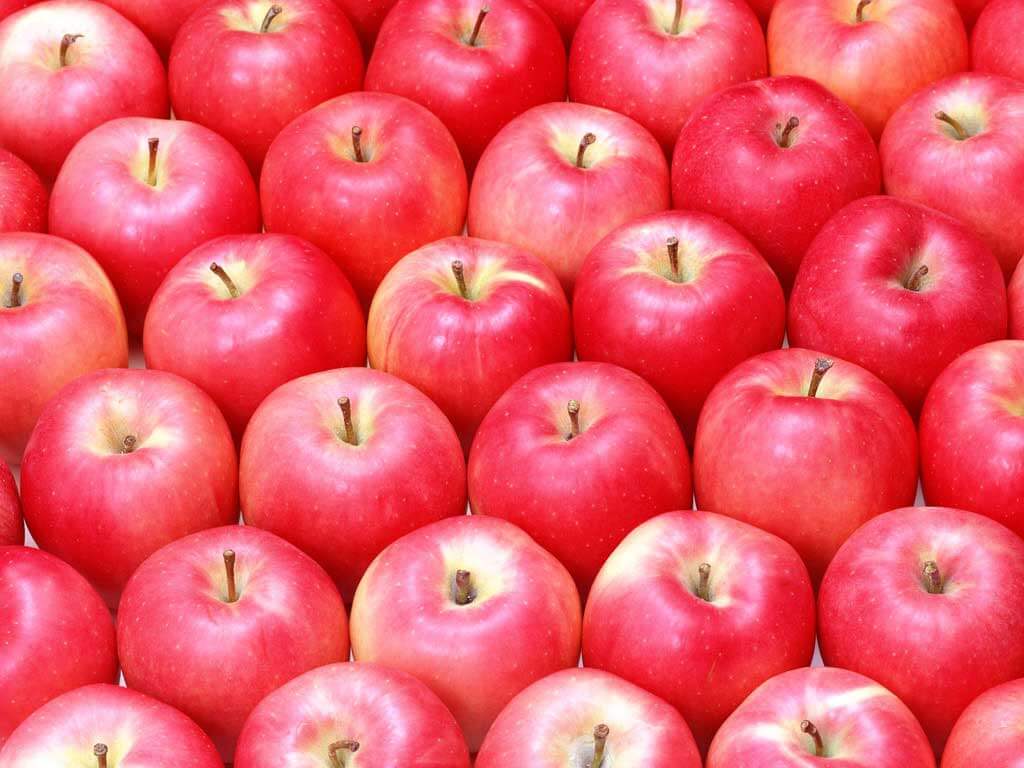Selecting and Handling
Maximize the Quality
Apples should be handled with the same care as you would do for the eggs as they can bruise very easily.
Look for firm apples that are well shaped and have smooth skin which is free of wrinkles and bruises. Brownish freckled areas do not affect flavor.

Storage Tips
- Apples are very susceptible to damage from the heat of the kitchen or storage room. Warm temperatures will cause the texture of the flesh to be mealy and soft.
- Always keep in the original cartons or the original bags. Exposed apples will shrivel and rapidly dehydrate.
- To keep the crunch, store them in perforated plastic bags in your refrigerator crisper.
- Cold, humid storage ensures that apples maintain their crispness, juicy texture and full flavour.
- Do not stack product on top of the cases or cause the apples to be crushed.
- Remove any apples with decay, damage or that begin to mold immediately.
- Remove any fruit that is overripe or have soft spots because they naturally give off ethylene gas that will cause nearby apples to ripen too quickly and spoil. Trim and use these apples for pies or apple sauce. The ethylene gas emitted by apples can also speed up ripening in most produce so store apples separately from other fruits and vegetables.
Handling Tips
- Follow good rotation practices, first shipments received should be used first.
- Plan to rotate frequently to maintain maximum quality.
- Avoid placing apples on non-sanitized kitchen counter tops to help prevent the potential for cross contamination.
- Always limit the time the product is out of refrigeration.
- To prevent browning when preparing apples sprinkle cut surfaces with lemon juice.


